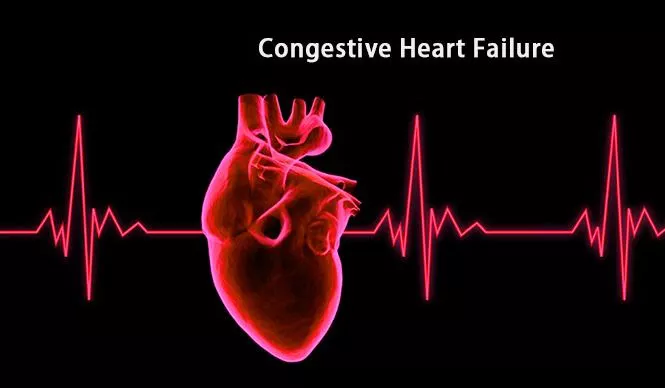Cardiology is a branch of medicine that deals with the disorders of the heart and the blood vessels. The cardiovascular system, which includes the heart and the network of arteries, veins, and capillaries, is vital for the sustenance of life. A healthy cardiovascular system ensures the efficient delivery of oxygen and nutrients to tissues and organs while removing carbon dioxide and other metabolic wastes.
Is Phlegm a Sign of Congestive Heart Failure?
Congestive heart failure (CHF) is a condition where the heart’s ability to pump blood is inadequate to meet the body’s needs.
This insufficiency can result in the accumulation of fluid in the lungs and other parts of the body, leading to various symptoms, including phlegm production.
Phlegm, a thick mucus produced in the lungs and airways, can be a sign of congestive heart failure, particularly when it is associated with other symptoms of fluid overload. In CHF, the heart’s reduced pumping efficiency leads to a backup of blood in the veins that return blood from the lungs to the heart. This backup increases pressure in these veins, causing fluid to leak into the lungs (pulmonary congestion) and leading to the production of phlegm.
SEE ALSO: 6 Treatments for Chronic Heart Failure in The Elderly
Symptoms And Pathophysiology
The symptoms of CHF are numerous and can vary from person to person. However, common signs include:
Shortness of Breath: Fluid accumulation in the lungs makes it difficult to breathe, especially during physical exertion or while lying down.
Fatigue and Weakness: Reduced blood flow to muscles and organs can cause general fatigue and weakness.
Edema: Swelling in the legs, ankles, and feet due to fluid retention.
Persistent Cough or Wheezing: Often accompanied by white or pink-tinged phlegm, this symptom results from fluid buildup in the lungs.
Rapid or Irregular Heartbeat: The heart tries to compensate for its decreased efficiency by beating faster or irregularly.
The underlying pathophysiology of CHF involves a complex interplay of factors. When the heart’s pumping ability is compromised, it leads to reduced cardiac output. The body initially compensates through mechanisms such as increased heart rate, vasoconstriction, and retention of salt and water to boost blood volume. Over time, these compensatory mechanisms become detrimental, exacerbating fluid overload and worsening heart failure symptoms.
Diagnosis And Monitoring
The diagnosis of CHF typically involves a combination of medical history, physical examination, and diagnostic tests. Key steps in the diagnostic process include:
Medical History: A detailed history helps in understanding the risk factors and the presence of symptoms.
Physical Examination: Examination may reveal signs such as jugular venous distention, lung crackles, and peripheral edema.
Echocardiogram: This ultrasound test evaluates the heart’s structure and function, measuring the ejection fraction (EF), which indicates how well the heart pumps with each beat.
Chest X-ray: Helps in assessing lung congestion and heart size.
Blood Tests: Tests such as B-type natriuretic peptide (BNP) or N-terminal pro-BNP (NT-proBNP) levels can indicate heart failure severity.
Electrocardiogram (ECG): Records the electrical activity of the heart, identifying arrhythmias or myocardial ischemia.
Management And Treatment
The treatment of CHF aims to relieve symptoms, improve quality of life, and reduce morbidity and mortality. Management strategies include:
Lifestyle Modifications: These are foundational in CHF management and include dietary changes (low-sodium diet), fluid restriction, weight management, and regular physical activity tailored to the patient’s tolerance.
Medications: Several classes of drugs are used in CHF management:
Diuretics: Help reduce fluid buildup by increasing urine production.
ACE Inhibitors: Dilate blood vessels, reducing the heart’s workload.
Beta-Blockers: Slow the heart rate and reduce blood pressure, decreasing heart strain.
Aldosterone Antagonists: Help remove excess sodium and water while retaining potassium.
Digoxin: Improves heart contraction and controls heart rate in atrial fibrillation.
Device Therapy: For certain patients, devices such as implantable cardioverter-defibrillators (ICDs) or cardiac resynchronization therapy (CRT) devices may be recommended.
Surgery: In severe cases, surgical options like coronary artery bypass grafting (CABG), heart valve repair or replacement, or even heart transplantation may be necessary.
The Importance of Patient Education
Education plays a critical role in the management of CHF. Patients need to understand their condition, recognize early signs of worsening heart failure, and adhere to their treatment plan. Education topics should include:
Medication Adherence: Importance of taking prescribed medications regularly and understanding their purpose and potential side effects.
Diet and Fluid Management: Guidance on maintaining a low-sodium diet and monitoring fluid intake.
Symptom
Monitoring: Recognizing symptoms such as weight gain, increased shortness of breath, or swelling, which may indicate fluid retention.
Regular Follow-up: Keeping regular appointments with healthcare providers to monitor the condition and adjust treatment as needed.
Conclusion
Congestive heart failure is a complex condition that requires a multifaceted approach to management. Understanding the symptoms, including the production of phlegm, is crucial for early detection and intervention. Through a combination of lifestyle changes, medication, and possibly surgical interventions, many patients with CHF can achieve a better quality of life and improved outcomes.
In summary, the presence of phlegm in patients with congestive heart failure is often a sign of pulmonary congestion due to fluid buildup in the lungs. Recognizing this symptom along with others and seeking timely medical care is essential for effective management of CHF.
Comprehensive care that includes patient education and adherence to treatment plans is vital in managing this chronic condition and reducing its impact on patients’ lives.

